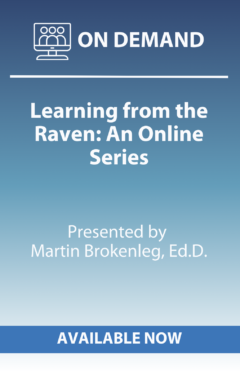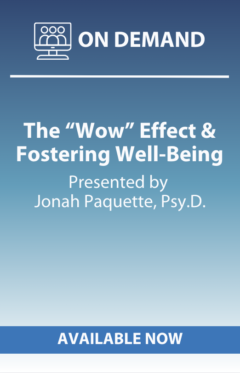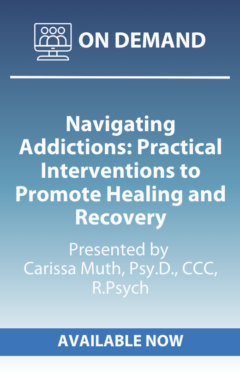Description
LIVE STREAM: November 13 – 15, 2024 from 8:30am – 4:00pm (Calgary, AB) Please adjust your start time according to your specific time zone.
ON-DEMAND: Recorded footage & course content (certificate, videos, quiz) will be available December 1- 28, 2024. Extensions cannot be granted under any circumstances.
Registration will close November 12, 2024.
Wednesday, November 13, 2024 | Day One
An Integrated Approach to Trauma Treatment: Synthesizing Neuroscience, Attachment Theory and Evidence-Based Modalities
PRESENTED BY John Arden, Ph.D.
This important workshop, facilitated by Dr John Arden, a world-renowned psychologist, teacher and author, will offer a wealth of knowledge and practical strategies that use a synthesized model of neuroscience, attachment theory and evidence-based treatment to more effectively treat clients who have experienced complex trauma.
You will learn about the latest research in neuroscience, epigenetics, immunology and endocrinology, and how these discoveries can be synthesized with evidence-based trauma treatments, psychotherapy research and attachment theory into a hybrid therapeutic model. This model will help you identify which elements of psychotherapeutic schools are effective and which may be counter-therapeutic in the trauma treatment context. You will be challenged and supported to move beyond any specific theoretical paradigms towards a common factors approach.
Engaging with real life examples, you will gain a deeper understanding of how addressing nervous system functioning is a fundamental therapeutic process in improving mood and behaviour and achieving a reduction in symptoms. Special attention will be given to addressing the neurodynamics of PTSD and the crucial role of memory.
At the end of this workshop, you will come away with many powerful tools, understandings and confidence to better assist your traumatised clients on their path to recovery and to live a fuller life.
Thursday, November 14, 2024 | Day Two
Normative and Prolonged Grief: Proven and Effective Clinical Interventions to Help Your Clients Process Grief and Loss
PRESENTED BY Christina Zampitella, Psy.D., FT
Mental health and healthcare professionals are faced with the often misunderstood and misdiagnosed symptoms of normative and prolonged grief. Formal education rarely, if ever, provides extensive enough training to accurately identify and treat those who are grieving. Unfortunately, grieving clients are diagnosed incorrectly because symptoms can mimic normative or prolonged grief. The grieving process is often pathologized, or misdiagnosed, resulting in potential exacerbation of the presenting issues because inappropriate interventions are utilized. As a result, those who are grieving are often inadvertently disenfranchised by providers, which can make the professional support they sought to reconstruct their previously shattered identities and worldviews ineffective, and even, at time, exacerbate other mental health difficulties. It is essential to be versed in identifying grief related constructs that may underlie, or even cause, mental health and behavior associated problems.
This presentation aims to provide current, research based information on the grieving process, clarify misconceptions of outdated theories, and differentiate between normative and prolonged grief. It also examines the changes in conceptualization, differential diagnosing, and effective, clinically proven interventions that may be utilized with grieving individuals and families. Attendees will leave with an improved clinical skill set they can immediately apply to identify and treat their clients.
Friday, November 15, 2024 | Day Three
Acceptance and Commitment Therapy: Transcending Traditional Approaches
PRESENTED BY Jennifer Patterson, Psy.D., LCPC
n this foundational course, participants will embark on a transformative journey into Acceptance and Commitment Therapy (ACT). ACT is a third-wave cognitive-behavioral therapy that transcends traditional approaches by seamlessly weaving together the processes of acceptance, mindfulness, and behavior change principles. Through experiential learning and evidence-based techniques, participants will cultivate a profound understanding of ACT and its practical applications.
Join ACT expert and International trainer Jennifer Patterson, Psy.D., LCPC, for this workshop, where you will develop efficient, evidence-based skills, case conceptualization techniques, and powerful strategies that will improve outcomes for the following:
- Anxiety Issues
- Post-Traumatic Stress Disorder
- Mood Disorders
- Substance Abuse
- Anger Management
- Eating Disorders
- Trauma
- Personality Disorders
Outline
The ACT Model
- The nature of human suffering
- ”Healthy normality” is a myth
- Language: The double-edged sword
- Undermine unhelpful thoughts
- Aiming for psychological flexibility and why
- The ACT hexagon model
Limitations of the Research and Potential Risks
- Children and adolescents
- Acute, florid hallucinations
- Catatonic depression
- Individuals with an adverse reaction to mindfulness exercises
Acceptance
- Strengthening a willingness to have emotions
- The opposite of acceptance is experiential avoidance
- Experiential avoidance throughout the lifespan
- Why acceptance is important
Defusion
- Look at thoughts rather than from thoughts
- Coping with automatic thoughts
- The power of words
- The problem with cognitive fusion
- Address CBT-based disputation techniques with defusion
Perspective-Taking
- Understand the “Self” in ACT
- Self-as-content, self-as-perspective, self-as-context
- Observer self-exercise
- Deal with identity issues
Mindfulness
- Contacting the present moment
- Why being in the here-and-now is critical for mental health
- Relationship between mindlessness and psychopathology
- Meditation, mindfulness and mindful action
- Exercises for mindful action
Values Work
- The positive side of language
- Identifying core values
- Differentiate values and goals
- Writing values-based treatment goals
- The ethics of values clarification
Committed Action
- Define “commitment” objectively
- Integrate evidence-based therapy with ACT
- Develop ACT-based behavior therapy treatment plans
- Improve behavioral activation with ACT
Pulling It All Together
- Hexaflex model for psychological flexibility
- Ask the “ACT Question” for self-help and case conceptualization
- Inflexahex model: Diagnosis from an ACT approach
Incorporate ACT into Your Own Approach
- Social skills training
- Applied Behavior Analysis
- Inpatient treatment programs systems
- Exposure and ritual prevention
- Behavioral activation
- Parent management training
- Executive Coaching








